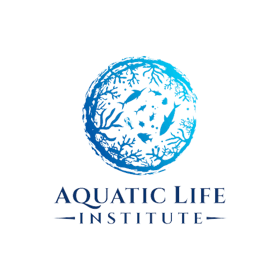
Every year, roughly 100 billion aquatic animals are farmed and another two to three trillion are caught at sea. The Benefits of Aquatic Animal Welfare for Sustainability is a report primarily addressed to public policy, industry and relevant stakeholders in the seafood and sustainability sectors that identifies ten key areas in which aquatic animal welfare considerations serve as a cross-cutting solution to many sustainable development challenges.
In a food production system that is highly intensive coupled with low animal welfare considerations, the results include poor health, more disease, antibiotic use, mortality, environmental and ecosystem impacts, and ultimately lower resource efficiency and productivity.
The report finds that in both aquaculture and capture fisheries, a holistic approach that includes animal welfare is needed in sustainable development policies. Recommended actions provided contribute to improved nutrition, food security, food safety and ecosystem health, along with reduced carbon emissions, ocean plastics, overfishing and public health threats.
Publish your content with EB Premium
It's not about how many you reach. It's about who. Get your news, events, jobs and thought leadership seen by those who matter to you.

















